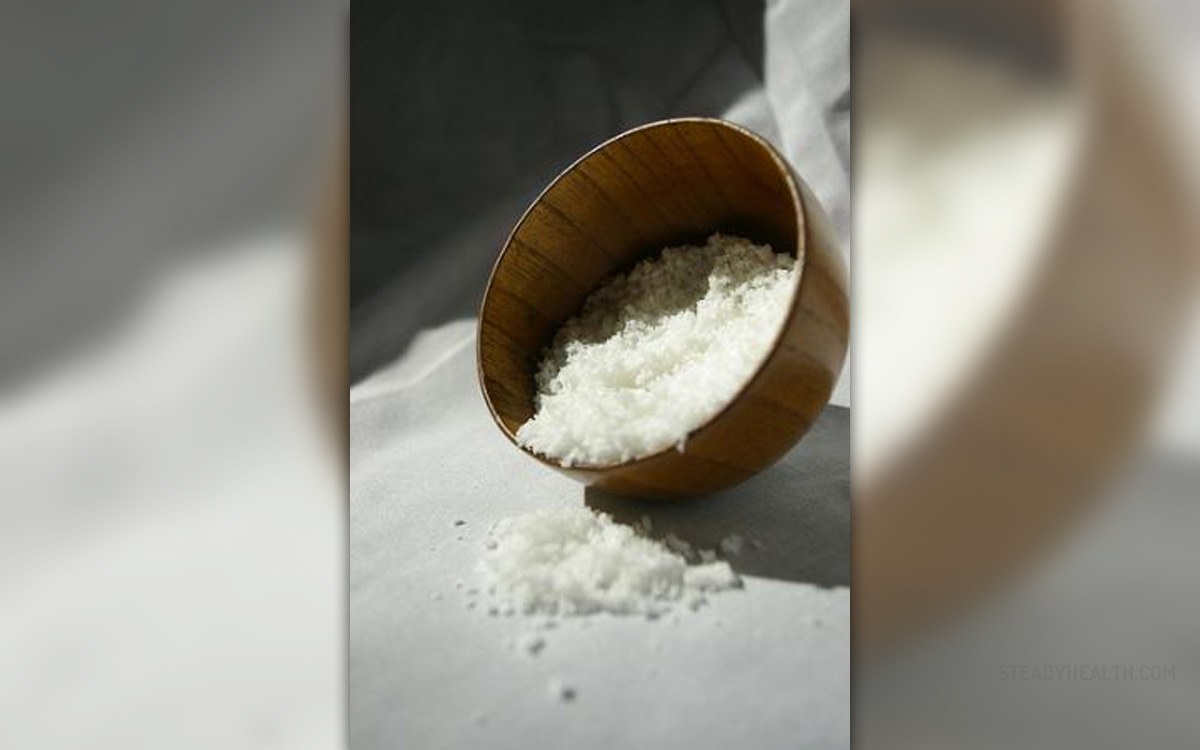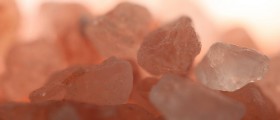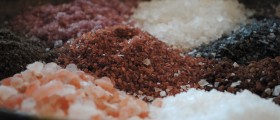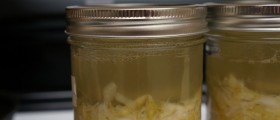
Salt is the single most important condiment used for cooking and preparing dishes. This mineral, comprised mainly of sodium chloride, was highly praised and very valuable since the dawn of the human race. Today there are different kinds of salt, and the two main kinds are table salt and sea salt.
Difference between table salt and sea salt
Both table salt and sea salt are made of at least 97 percent sodium chloride. There are, however, differences in the mineral content, provenance, texture, taste and use of the two.
Plain table salt is made in salt deposits where water evaporates until the crystals form. The salt is then processed, bleached, iodized and devoid or naturally occurring minerals. Sea salt, on the other hand, undergoes much less processing and it is simply harvested from clean, evaporated seawater. This makes sea salt much more rich in mineral content, and it also makes a difference in shape. Sea salt usually has bigger grains and it is crunchier. Also, sea salt is used for finishing, meaning that it is sprinkled to the dish when it is ready.
Although sea salt and table salt have approximately the same sodium chloride content, sea salt may actually contain a little less sodium than table salt, because of the shape of its crystals that contain more air.
Health benefits of sea salt
It is generally believed that sodium raises blood pressure. However, in right proportions and with enough water, sea salt can actually help regulate the blood pressure by searching and eliminating the harmful deposits of sodium in the body. It also regulates abnormal heart rate.
A little sea salt taken with some water before bedtime promotes good, deep sleep and thus helps with insomnia. It also clears up sinus and bronchial congestion and catarrh and helps to eliminate mucus plugs and sticky phlegm.
Sea salt also regulates electrolytes and prevents water retention. It has been reported that sea salt can even help with kidney stones.
This salt provides important minerals to the body, making it more resistant to infections and more able to repair and heal itself after injuries and illnesses. It promotes absorption of important nutrients in the intestines and regulates the blood sugar.
Sea salt helps maintain normal pH levels in the body, prevents acidity and conditions and diseases that may arise from high acidic levels.
By supplying important minerals and other nutrients to the body, sea salt prevents muscle cramps.
Sea salt even prevents drooling during sleep and consequently the formation of double chin, which can be caused by saliva glands working overtime to keep the mouth lubricated.

















Your thoughts on this
Loading...